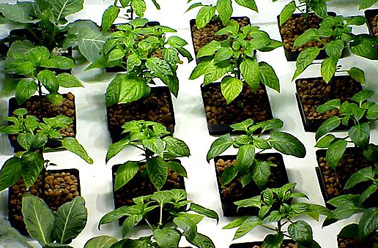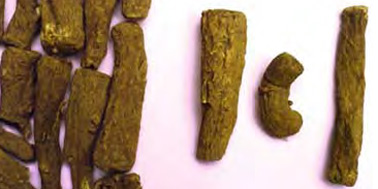|
Botanical Name:
Saussurea lappa
Kustha consists of dried roots of Saussurea lappa C.B.
Clarke (Synonym Aucklandia lappa), Family Compositae
Common Name(s) in English & Indian Languages
Sanskrit: Amaya, Pakala
Assamese: Kud, Kur
Bengali: Kudo
English: Costus, Kut Root
Guajarati: Kuth
Hindi: Kutha
Kannada: Changal Kustha
Kashmiri: Kuth
Malayalam: Kottam
Marathi: Upleta, Kustha
Oriya: Kudha
Punjabi: Kuth
Tamil: Goshtam, Kosbtham, Kottam
Telugu: Changalva Koshtu
Urdu: Qust
Botanical description:
Saussurea lappa is a tall, robust, perennial herb with thick
cylindrical roots, some slightly curved, 5 ~ 20 cm long, 1 ~
6 cm in diameter, and sometime split longitudinally. The
outer surface is yellowish brown ~ grayish brown with rough
longitudinal furrows, fine netted wrinkles, and root
branches, and sometimes exhibited with the outer bark peeled
and a dented scar left by the stem on the head of root. The
texture is hard and difficult to snap off. The cut surface
is yellowish brown ~ dark brown. The Xylem and the ray
tissue form in the radial shapes. Several fissures and oil
cavities are scattered under a magnifying glass. Old roots
have with piths in the center, and sometime empty inside. It
smells characteristic and tastes bitter.
Parts used:
Root
Major chemical constituent:
Essential oil, alkaloid (saussurine) and bitter resin.
Therapeutic uses:
• Asthma (Svasa)
• Cough (Kasa)
• Diseases of skin (Kustha)
• Gout (Vatarakta)
• Erysepales (Visarpa) |
|


|
|
|



